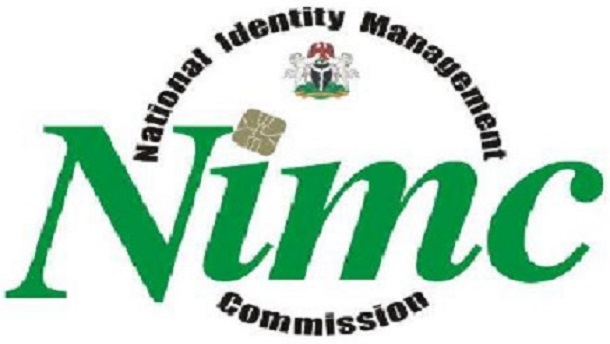E-Business
MRA Inducts NIMC into FOI Hall of Shame

Media Rights Agenda (MRA) has inducted the National Identity Management Commission (NIMC) into its Freedom of Information (FOI) Hall of Shame, saying it was recognizing the agency for its determined efforts to undermine the effectiveness of the FOI Act, 2011.
MRA accused the Commission of failing to comply with its duties and obligations under the FOI Act, including the most simple and straightforward aspects of the Law that do not present any implementation challenges or that would cost it nothing to comply with.
In a statement in Lagos, Mr. Ayode Longe, MRA’s Programme Director, said: “In the absence of any explanation to the contrary, it would appear that the NIMC has adopted a deliberate policy of non-compliance with the FOI Act, which really amounts to shooting itself in the foot as such an attitude robs it of the public trust and confidence that it requires to execute its mandate efficiently and effectively.”
MRA noted that the NIMC is a vital government agency, established by the NIMC Act No. 23 of 2007, to operate Nigeria’s national identity management systems, including the national identity card database, integrate the existing identity database in government institutions, register individuals and legal residents, assign a unique national identification number and introduce general multi-purpose cards.
But it stated that the Commission had failed over the years to act in accordance with the requirements of the FOI Act, including its obligation to conduct appropriate training for its officials on the public’s right of access to government-held information and equip relevant staff with the skills to effectively implement the Act as provided by Section 13 of the Act.
Mr. Longe said: “Among many other arguments which can be made, one reason why the Commission’s attitude is troubling is the fact that as an agency that collects and maintains citizens’ personal data, it owes the citizens a duty to be open and to let them know how it collects the data, what it does with the data, how it keeps them and, crucially, allow citizens access to information held about them and be able to correct their own personal data where there are errors.”
MRA also observed that over the last six years, the NIMC has not designated an officer to whom FOI requests should be sent in utter disregard of Section 2(3) (f) of the Act, while it has also never, during the same period since the coming into force of the Act, submitted a single FOI implementation report to the Attorney General of the Federation as required by Section 29 (1) (a – h) of the FOI Act and in accordance with the provisions of the Guidelines on the Implementation of the FOI Act issued by the Attorney General of the Federation.
Mr. Longe also noted that “the NIMC has not published on its website most of the categories of information it is expected to publish that will assist the public in making requests for information to the Commission. For instance, there is no information on its website about the classes of records it holds or information relating to grants or contract it had made; the list of all its staff and their salaries; information relating to the receipt or expenditure of public funds; manuals used by its employees in administering or carrying out any of its programmes or activities; documents containing substantive rules of the institution; or any list of files containing applications for contracts, permits, grants, licenses or agreements, etc. among many categories of information that the Act requires it to publish.”
MRA also questioned the Commission’s responsiveness to requests for information from the public, saying that there is also no indication that it has granted any request for information made to it.
On the contrary, it said, in September 2014, when two non-governmental organisations, Paradigm Initiative Nigeria (PIN) and Public and Private Development Centre (PPDC), requested from the NIMC pursuant to the FOI Act, details of the agreement between it and MasterCard leading to the use of the MasterCard logo in the National Identity Card, it took more than one month for the NIMC to respond despite reminders and when it eventually did by its letter dated October 24, 2014, it refused to disclose the information requested with a bogus national security claim.
MRA called on the NIMC to redeem its image by complying with the provisions of the FOI Act and to demonstrate that it actually holds “transparency” as one of its core values.
Launched on July 3, 2017, the FOI Hall of Shame shines the spotlight on public officials and institutions that are undermining the effectiveness of the FOI Act through their actions, inactions, utterances and decisions.
MRA’s 16-minute video documentary titled: “The Dirty Dozen” which focuses on the first 12 inductees into the FOI Hall of Shame is available for viewing on Youtube at: https://www.youtube.com/watch?v=dU7MEisRQqM.
E-Business
Kaspersky Discovers New Phishing Campaign Exploiting Google Tasks Notifications to Steal Corporate Credentials

Kaspersky has uncovered a new phishing scheme that abuses legitimate Google Tasks notifications to trick corporate users into revealing corporate login credentials.

By leveraging Google’s trusted @google.com email domain and notification system, attackers bypass traditional email security filters and exploit users’ trust in familiar services.
In this campaign, victims receive an authentic-looking notification from Google Tasks with the subject line “You have a new task.” The message creates the illusion that the recipient’s company has adopted Google’s task management tool, pressuring them to act quickly. The notification often includes elements of urgency, such as a high-priority flag and a tight deadline, to prompt the victim’s immediate response.
Upon clicking the embedded link, users are directed to a fraudulent form disguised as an “employee verification” page, where they are asked to enter their corporate credentials under the pretense of confirming their status. These stolen credentials can then be used for unauthorised access to company systems, data theft, or further attacks.
“Google’s vast ecosystem of services gets exploited by scammers. The scheme with Google Tasks is part of a broader trend observed before and continuing into 2026, where cybercriminals misuse legitimate platforms to distribute scams and phishing.
Notifications originating from legitimate domains naturally evade many spam and phishing filters, while the social engineering aspect – making it seem like an internal company process – lowers the victim’s guard,” comments Roman Dedenok, Anti-Spam Expert at Kaspersky.
E-Business
esentry 2025 Report Shows Healthcare, Financial Services and Telecoms as Staging Grounds for Increased Cyberattacks in Africa

Cyber adversaries targeting African organisations are increasingly shifting away from opportunistic attacks toward deliberate, sector-specific campaigns aimed at the continent’s most critical digital infrastructures, according to the esentry 2025 Annual Report released by esentry, Lagos-based Africa’s leading indigenous Managed Security Service Provider (MSSP).

The report identifies healthcare, financial services, and telecommunications as the primary staging grounds for high-velocity cyberattacks, reflecting a growing focus on sectors that underpin economic stability, public welfare, and digital connectivity across Africa.
The findings are drawn from one of the largest cybersecurity datasets analysed in the region. Over the course of 2025, esentry processed more than 31 billion security events, generating 3.5 million alerts and successfully blocking over 15,000 malicious attempts. This monitoring scale shows that, while traditional financial institutions remain a core target, the threat landscape has expanded to include digital lending platforms, healthcare systems that store sensitive personal data, and telecom operators responsible for national and regional connectivity.
Within the healthcare sector, the report highlights ransomware as the most acute risk, with attackers frequently exploiting exposed Remote Desktop Protocol (RDP) services to compromise patient data and disrupt essential medical operations. In financial services, organisations are facing a surge in credential abuse, insider-related threats, and info-stealer malware designed to enable fraud and unauthorised access. Telecommunications providers are increasingly targeted by highly tailored phishing campaigns and attacks on exposed web services, which aim to harvest credentials and compromise customer data.
Commenting on the findings, Gbolabo Awelewa, Chief Business Officer at esentry, said the nature of cyber threats across Africa has evolved significantly. “The threats we are seeing today are deliberate, informed, and carefully tailored to local enterprises. Attackers are exploiting trusted access and moving quietly within networks, which makes early detection critical. Our coordinated cybersecurity model, spanning Defence, Intelligence, Offence, and Security Engineering, allows us to combine scale, speed, and deep contextual insight to detect and neutralise threats before they escalate,” Awelewa said.
A defining trend identified in the report is the shift from overt system exploitation to the abuse of legitimate access. By leveraging compromised credentials and ‘living-off-the-land’ techniques, attackers can blend into routine enterprise operations and significantly delay detection. This approach has compressed the attack lifecycle, enabling adversaries to move from initial access to full operational impact in fewer than 15 days.
To counter this acceleration, the report emphasises the importance of early detection and automated response. esentry says it currently contains low-complexity incidents in under 90 seconds, using a combination of structured threat hunting and centralised telemetry to anticipate and absorb attacker pressure rather than reacting after damage has occurred.
As African organisations continue to digitise, the esentry 2025 Annual Report positions itself as a critical reference point for understanding the continent’s evolving cyber threat environment. The report concludes that protecting Africa’s digital trust will require a shift away from fragmented security tools toward disciplined, coordinated defence frameworks, what esentry describes as a unified Phalanx formation.
E-Business
AfDB, UNDP Launch $10Bn AI Initiative for Africa

The African Development Bank Group (AfDB) and the United Nations Development Programme (UNDP) have launched an ambitious $10 billion project to support the adoption of Artificial Intelligence (AI) across the continent.

The 10 Billion Initiative intends to accelerate ethical AI adoption and inclusive digital economic growth in Africa.
The initiative follows the Nairobi AI Forum, which took place earlier this month in Kenya and brought together governments, private sector leaders, development partners, and tech innovators to define pathways for impactful AI adoption.
According to the organisations, the strategy is a co-designed collaboration between the Bank Group, UNDP, and commercial partners that aims to raise up to $10 billion by 2035.
The resources will be used to create up to 40 million new jobs across the continent by 2035, through targeted investments that provide the groundwork for AI and accelerate widespread adoption in everything from entrepreneurship and regional data infrastructure to policy frameworks and skill development.
Nicholas Williams, AfDB Group ICT operations division manager, commented: “As a leading multilateral development institution, the bank is leveraging its comparative advantage to ensure Africa is not left behind in the AI era.
“The AI 10 Billion Initiative paves the way for expanded partnerships and sustained investments that will accelerate AI entrepreneurship, strengthen data and infrastructure ecosystems, and support inclusive growth across the continent.”

 General News3 days ago
General News3 days agoMore 14m Farmers to Benefit from AfDB-backed Initiative

 Telecom3 days ago
Telecom3 days agoMTN Nigeria Posts Record N1.70 Trillion Pre‑Tax Profit, Declares N20 Dividend for 2025

 Telecom3 days ago
Telecom3 days agoDimension Data Nigeria Secures ₦20Billion Funding to Strengthen Digital Infrastructure

 News3 days ago
News3 days agoGalaxy Backbone Confirms Over 150,000 Active Official Government Email Accounts, Clarifies Status of GOVMAIL

 Telecom3 days ago
Telecom3 days agoAlerzo Liquidates Delivery Fleet as N4.38bn Moniepoint Loan Row Deepens

 General News3 days ago
General News3 days agoNewmark Webinar Explores How AI Could Transform Healthcare in Africa

 General News18 hours ago
General News18 hours agoSERAP Asks FCCPC to Investigate Google, Meta, Others over Alleged Rights Abuses

 E-Financial18 hours ago
E-Financial18 hours agoIran-Israel-US Conflict and CBN’s FX Gains: A Stress Test for Nigeria’s Monetary Stability























